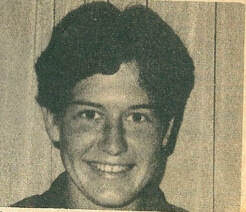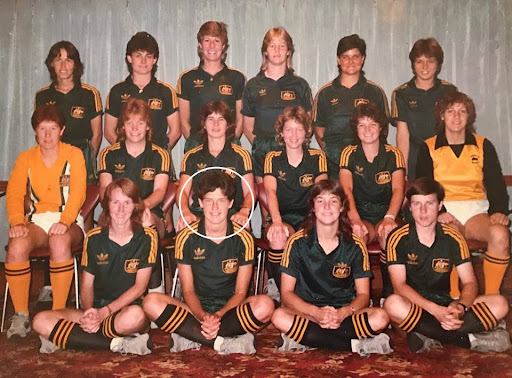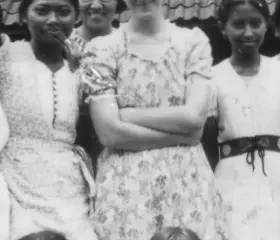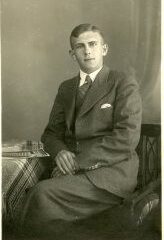
Mandi Langlar’s football journey reflects the contribution of Dutch migrants and their descendants to the development of Australian football, particularly on Sydney’s northern beaches. As a second-generation Dutch-Australian, Mandi carried forward a family passion for the game, achieving national honours at a time when women’s football was still fighting for recognition.
Mandi’s father, Pete Langlar (born Langelaar), was born in Zeist in the Netherlands and migrated to Australia in 1954 at the age of 16, together with his parents and five siblings. The family settled in Bombala, New South Wales, where Pete first took up rugby before returning to football, the sport of his homeland. In the late 1950s, he moved to Sydney’s northern beaches and joined SC Neerlandia, a club that had become a focal point for Dutch migrants in the area.
Pete went on to play over 200 first-grade matches for Manly Warringah Football Club and became one of the club’s first life members in 1977. Beyond his playing career, he dedicated himself to coaching and administration, helping to build football on the northern beaches and pass on his love of the game to the next generation.

Mandi grew up in this football environment. Alongside her brother, she spent much of her childhood around local football grounds. At just 13 years old, she joined the open-age team at Killarney Club, impressing with her skills and determination. Her talent quickly propelled her into the Manly representative side and then the New South Wales state team by 1982.
In 1984, Mandi was selected for the Australian national team. Over the next four years she earned five caps, representing her country in major tournaments, including the 1988 international competition in China where Australia famously defeated Brazil. Her inclusion in the national team placed her alongside other Dutch-Australian players of the era, such as Rose van Bruinessen and Renaye Iserief, highlighting the quiet but important role of the Dutch migrant community in the early Matildas.
Following her playing career, Mandi Langlar remained dedicated to football through coaching and development work. She has been deeply involved in women’s and youth football in regional New South Wales, particularly on the Mid North Coast. Mandi took on coaching roles with Mid Coast Football Club, where she helped to guide both senior women’s teams and youth league squads. Her focus on mentoring young players reflects her commitment to giving back to the sport that shaped her own life.
Through her coaching, Mandi has played an important part in supporting the growth of women’s football in regional areas, helping to create pathways for girls to progress in the game.
For Pete, seeing Mandi succeed at the highest level was his proudest football moment. Together, their story reflects the experience of many Dutch migrant families who brought their love of football to Australia, helped build the local game, and passed that passion on to their children. Mandi’s career stands as a tribute not only to her own abilities but also to the enduring contribution of Dutch-Australians to the history of football in this country.
See als: Clogball


